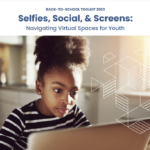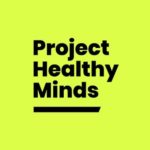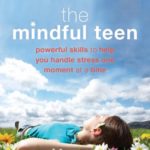Mental Health
Mental Health America is a national non-profit community organization that is dedicated to helping people live mentally healthier lives.
Mental health can’t wait. Taking action for your personal mental well-being—whether by setting boundaries, reaching out for support, or practicing self-care—can make a lasting difference. This Mental Health Month, prioritize yourself and explore the resources that can help you build resilience, manage challenges, and thrive.
Together, The National Child Traumatic Stress Network (NCTSN) and The National Center for Posttraumatic Stress Disorder (PTSD) offer the Psychological First Aid (PFA) for Schools: Field Operations Guide as a resource for educators and educational professionals. This guide offers the PFA core actions which include contact and engagement; safety and comfort; stabilization; information gathering; practical assistance; connection with social supports; information on coping; and linkage with collaborative services.
In commemoration of Bebe Moore Campbell National Minority Mental Health Awareness Month, Mental Health America (MHA) sponsored the creation of the 2024 BIPOC Mental Health Toolkit.
This toolkit offers fact sheets, outreach ideas, sample newsletters, social media tools, and more to better support youth in our communities.
In commemoration of Bebe Moore Campbell National Minority Mental Health Awareness Month, Mental Health America (MHA) sponsored the creation of the 2024 BIPOC Mental Health Toolkit.
This toolkit offers fact sheets, outreach ideas, sample newsletters, social media tools, and more to better support youth in our communities.
As we step into another school year, it remains crucial to recognize the mental health challenges our nation’s school-age children face. Going back to school can be an exciting time filled with new friends, new social events, and new extracurriculars. But returning to school also means re-entering the virtual spaces that exist in tandem with the classroom – which can be both helpful and harmful. For young people, online spaces can bring with them feelings of exclusion, body image concerns, misinformation, cyberbullying, harassment, and violent content – all of which have an impact on mental health.
Mental Health America (MHA) is dedicated to providing quality resources that can be used to facilitate these kinds of conversations. Through this toolkit, we aim to equip you with the social media knowledge you need to support the young people in your life, whether that is as a parent, caregiver, teacher, coach, counselor, or school administrator.
Safety on college campuses are essential to student well-being, particularly for students who identify as LGBTQ+. This resource, provided by College Educated, is designed to support students, parents, teachers, and campus professionals with a guide to navigate challenges faced while participating on a college campus.
The hope of this guide is to provide a resource that supports the LGBTQ student, parents, teachers and campus professionals to increase understanding, provide resources and education and hopefully help make connections that will keep an LGBTQ in college and successful as they transition to the workplace.
We’re a collective of socially-minded creatives, entrepreneurs, musicians, inventors, engineers, doctors, researchers, business leaders, policy wonks, and every-day problem solvers dedicated to building a more supportive world. Mental health can feel like a maze. We’re here to help you navigate.
Find mental health resources based on how you’re feeling or what you’re going through.
Information, resources and tips for identifying, understanding and managing children in the classroom affected by trauma.
Kid Power is an interactive video platform for students in grades Kindergarten through 8th. Kid Power combines philanthropy and fun with mental health, social-emotional learning (SEL), child rights, and equity and access for all students.
National Association of Anorexia Nervosa and Associated Disorders (ANAD) is a non-profit organization that is dedicated to assisting people battling eating disorders such as Anorexia nervosa and Bulimia nervosa. ANAD supports individuals through awareness, advocacy, referral, prevention and education. In addition, ANAD runs a helpline and help email system.
Being a teen is stressful! Whether it’s school, friends, or dating, the teen years are full of difficult changes-both mentally and physically. If you’re like many teens, you may have difficulty dealing with stress in effective ways. You aren’t alone, and there are things you can do to stay calm, no matter how stressful life becomes. All you need to do is stop, breathe, and be mindful and aware in the present moment.
As a parent, caregiver, or other trusted adult, it can be hard to know how to support a youth who is struggling. BC Children’s Kelty Mental Health Resource Centre provides peer support, information, and resources to help you talk to and guide a youth in your life to the services and supports they may need.







